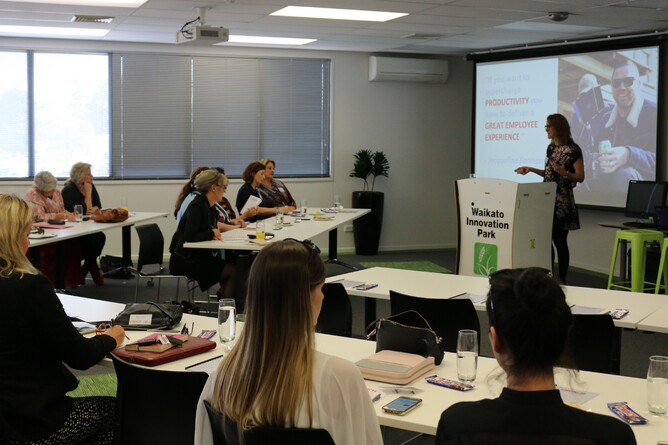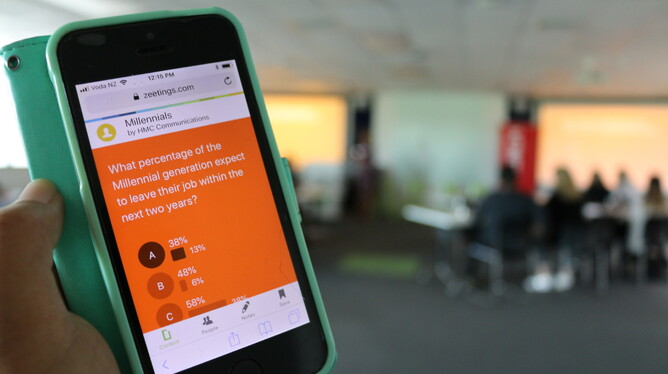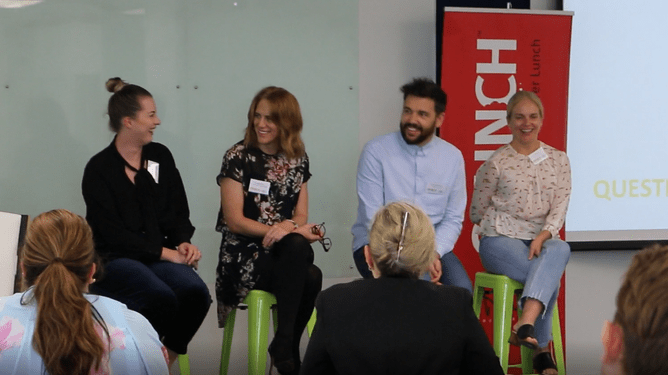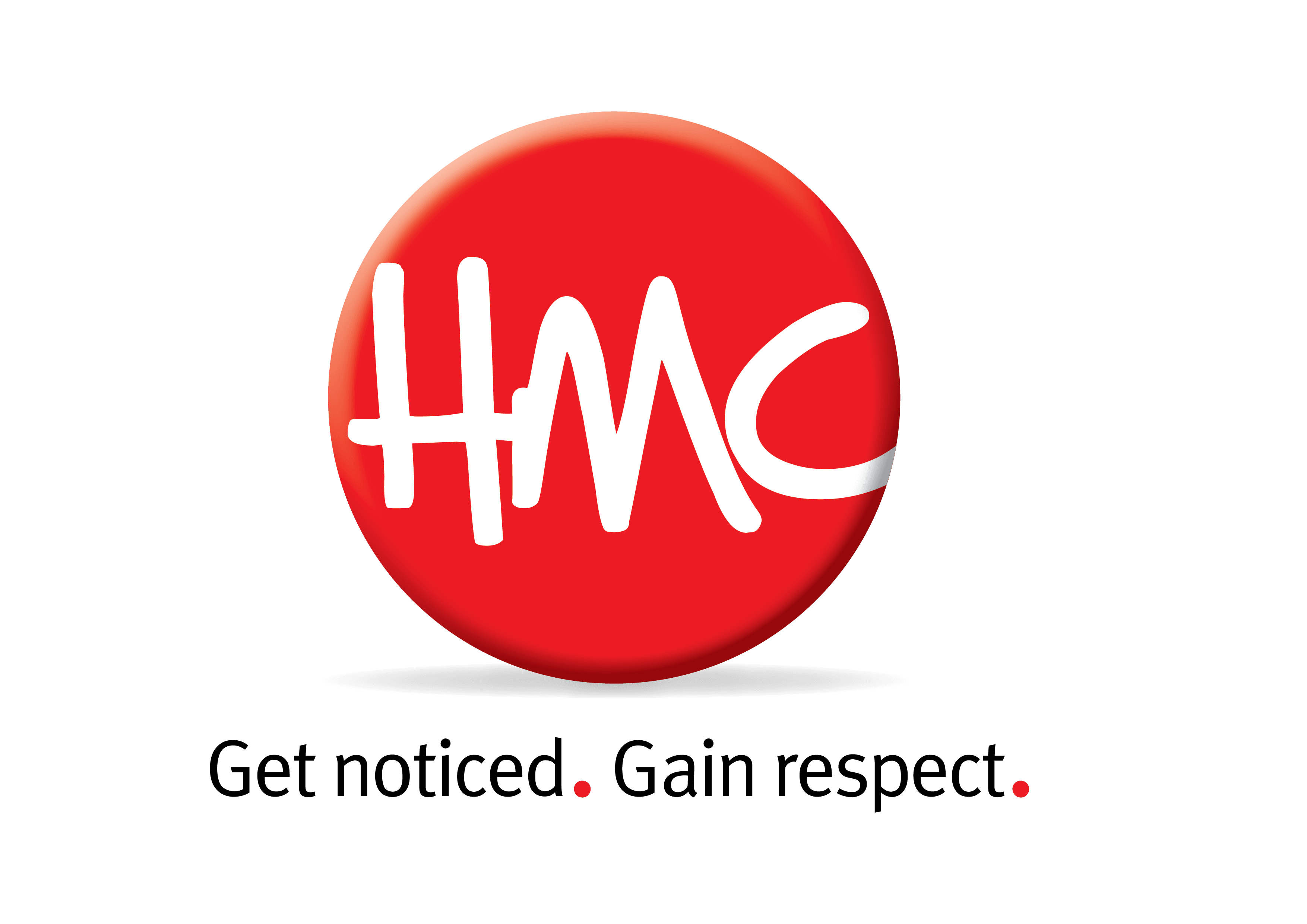Waikato business leaders gathered last week to talk about the importance of the Millennial generation and how to better attract, inspire and communicate with them.
The Crucial Conversations over Lunch (CRUNCH) session in Hamilton last Tuesday featured a panel of four experts talking about Millennials from a variety of point of views, organised by local public relations consultancy HMC Communications.
Understanding demographic groups and generational cohorts can help business people – and employers – understand what makes their staff tick, says Heather Claycomb, director of HMC Communications.
“There can be an ‘us and them’ mentality between older and younger generations, and that is definitely true in the workplace. However, if you better understand Millennial thinking and what engages, motivates and inspires your younger workforce, you are in a good position to retain talent, improve productivity and innovate your business,” says Claycomb.
The Millennial generation includes people born between 1981 and 1996 according to The Pew Research Institute, making them now aged around 22 to 37.
The Deloitte Millennial Survey 2017 predicts that by 2020 about 75 per cent of the workforce is expected to be made up of Millennials.
“The Millennial generation are going to be hugely influential, and it’s time we paid more attention to them,” says Claycomb. “Millennials have been labelled entitled, impatient and fickle by some commentators, but that’s just not true. Millennials are passionate and want to make a difference, and are already challenging the status quo – in both society and business. It’s time for business leaders to get on board to better understand and work alongside them, or they risk losing staff and being left in the dust.”
The CRUNCH session speakers included four Millennials: commentator and former journalist Emily McLean; Clive Somerville, an account manager who has worked closely with millennial staff; Gemma Major, who leads a millennial networking organisation, and Nicola Lee, a public relations expert.
McLean, who currently works with the Commission for Financial Capability, has worked extensively with various brands including shipping firm Maersk and accounting firm Deloitte on social media engagement. While working at Deloitte she wrote about the rewards and challenges that Millennials bring to the workplace, and data from her work and the international Deloitte Millennial Survey informed many of her insights.
McLean was born in 1987 and says she’s a typical Millennial. “I have a job that didn’t exist when I was in high school, and I am also entrepreneurial and set up my own company, redoing people’s dating profiles,” says McLean.
“Contrary to some opinions, Millennials are not self-entitled or a selfish generation. They care about the environment, their health and social responsibility, and they want to do a lot of good in the world. They are passionate and purpose-driven, digital natives, and are flexible and agile.”
She said that “Millennials want a purpose, not a pay check” and that “86 per cent of Millennials believe that the success of a business isn’t just measured in terms of its financial performance”.
She said that if employers want to really engage with Millennials, that involves demonstrating corporate social responsibility (CSR). “Millennials have a deep sense of responsibility for the world, and they see their workplace is a place to exert that influence and make a difference,” says McLean. Millennials see their job as very much integrated into their life which is why it’s so important that there’s a strong purpose behind why they come to work each day.”
To encourage loyalty and productivity, companies that want to attract and retain Millennials need to deliver “a great employee experience”.
That means thinking “outside the box” when it comes to working hours. “Gone are the days of the nine-to-five work day. Millennials will question why they work the hours they do and ask themselves ‘well if I’m not a morning person and I work best from 10am to 6pm, then why don’t I work those hours?’
According to the Deloitte Millennial Survey, 69 per cent of Millennials choose when they start and finish work, said McLean.
Millennials also prefer a flat organisational structure, not a hierarchical structure. “They want mentorship, not management,” says McLean. “It’s really important for Millennials that they are heard and seen, and that they matter. They want a lot of growth and self-development in the workplace and a lot of this can come from their manager.”
The risk of ignoring the needs of Millennials, is losing them to the competition. The Gallup Institute Survey found that only 14 per cent of employees in New Zealand and Australia are engaged at work. Disengaged people can easily move companies, and Millennials are not a generation that will stick around if bored or unappreciated says McLean. The Deloitte Millennial Survey found that 38 per cent of Millennials expect to leave their jobs within the next two years.
Gemma Major is a Millennial and works at Momentum Waikato, the region’s community foundation. She is also co-founder and chair of Seed Waikato, a charity supporting local Millennials to thrive. In 2017 she was identified as one of ’30 Under 30’ Hamiltonians making a difference to the city and region.
“There are four things that Millennials want: meaningful connections, positive well-being, engagement with community and growth opportunities,” says Major. “Our generation has a sense of responsibility, we are digital natives and work well with technology, we are innovative and we are purpose-driven. Organisations from all industries need to think how they can give space to leverage these unique attributes of the Millennial generation.”
Major is a good example of a Millennial using her career and work-life as a force for positive change. “I’ve been incredibly lucky to be surrounded by inspirational people and mentors at Momentum Waikato,” says Major. “I am passionate about making a difference and I feel lucky and inspired to be working on transformational projects that will have a positive impact on the community for generations to come.”
Clive Somerville is a 37-year-old Hamilton father of two and recently began working at NZ Thoroughbred Racing. Although he is sceptical about demographic groupings and “the millennial stereotype” he has worked closely with younger staff, and gave insights into how they operate and how to engage and inspire them. “In my experience, young people in the workplace want to make a difference so it’s important to be clear and expose fast exactly how what they are doing makes a difference to the client, to me and the company,” says Somerville, who until recently lead a team of Millennials at tech company Enlighten Design.
He says it’s important to reward staff – but not in a showy way. “Pull someone aside, go for a walk and tell them ‘job well done’. They appreciate that you didn’t embarrass them in front of the rest of the team, and that you value what they are doing.”
Somerville also says “don’t haggle over salary – put your best offer on the table first” and that customising the workplace experience to suit the needs of staff pays off. This includes things such as paying weekly rather than monthly wages, employee perks such as paying sports fees, and team outings (“the lunch bus”).
Nicola Lee is an account manager and social media lead at HMC Communications. She believed “there is a bit of Millennial in everyone”. In terms of communicating with that generation, she said authenticity and humour were important. “It’s important to show who you are and what you believe in with everything you do and say. Tell your story, don’t be afraid to be original, and humour is definitely allowed,” says Lee.
To inspire Millennials she said “ask questions – and listen to the answers”. She said that CEOs and business leaders shouldn’t be afraid to admit failure. “It’s okay to stuff up, and if you share your feelings and show you are human, you are relatable and that’s important to Millennials,” says Lee. “When communicating just speaking like a normal person can get you a long way, so using more casual language is best when communicating with this cohort.”
This week’s CRUNCH session is the third in a series of learning lunches put on by HMC Communications aimed at senior leaders. The 90-minute sessions are designed to help leaders navigate the pressures they face from sources outside their business and how that can impact reputation.
“We hope our CRUNCH sessions will inform and inspire, and get people talking and thinking about issues affecting their business and its reputation,” says Claycomb.
The first CRUNCH session, held late in 2017, was on cybersecurity and the second one, held in February, was on the Weinstein scandal and sexual harassment.
“Through each session there is a lot of discussion, the opportunity for participants to ask questions and share insights, and we look at topics from a multitude of perspectives, including corporate, communications and human resources,” says Claycomb. “Attendees tell us they learn a lot and they go away with practical actions for their businesses.”
The session was held on Tuesday 1 May at Waikato Innovation Park in Ruakura, Hamilton. The next two CRUNCH sessions will be held in August and November 2018.



